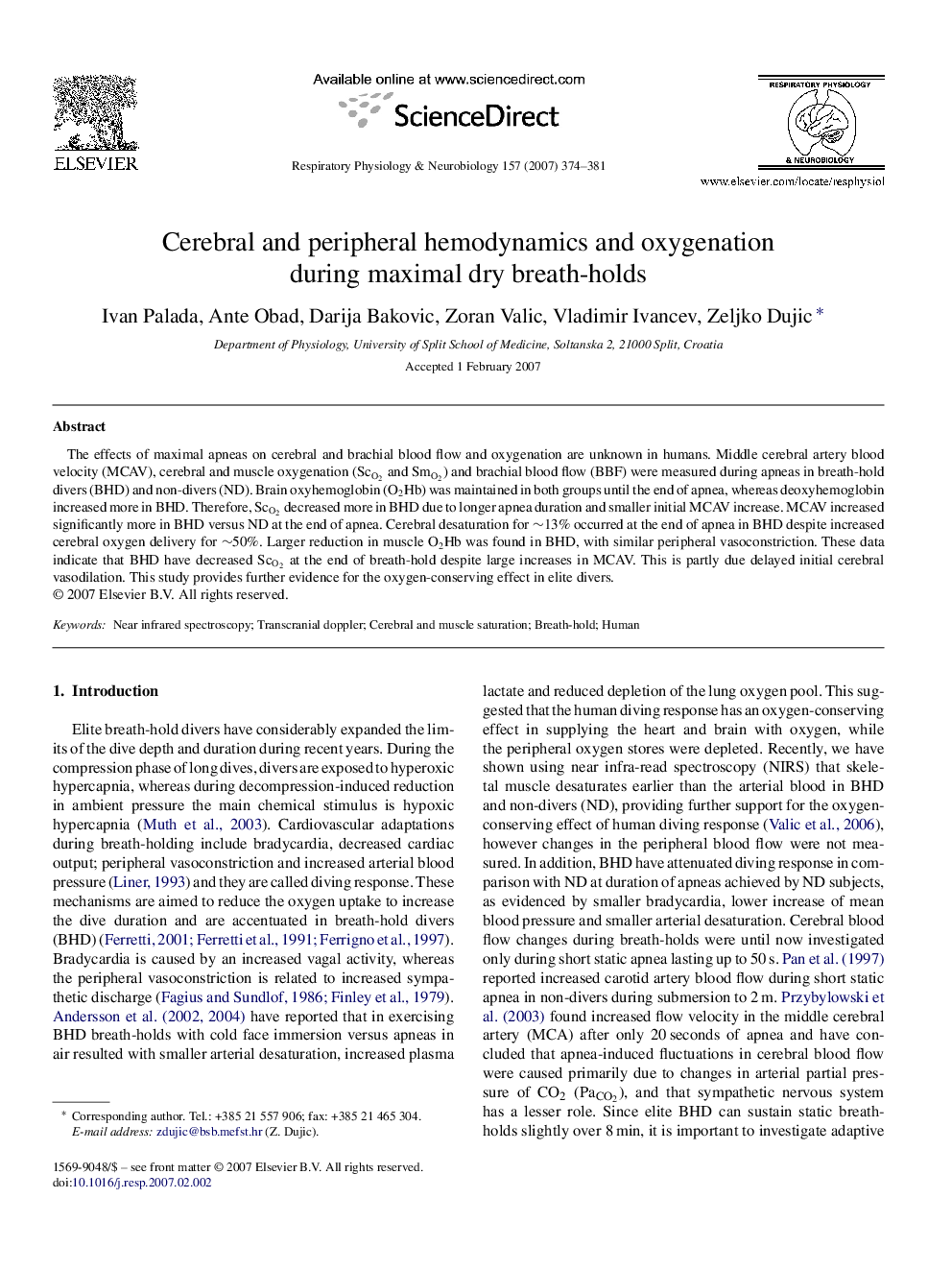| Article ID | Journal | Published Year | Pages | File Type |
|---|---|---|---|---|
| 2848347 | Respiratory Physiology & Neurobiology | 2007 | 8 Pages |
The effects of maximal apneas on cerebral and brachial blood flow and oxygenation are unknown in humans. Middle cerebral artery blood velocity (MCAV), cerebral and muscle oxygenation (ScO2ScO2 and SmO2SmO2) and brachial blood flow (BBF) were measured during apneas in breath-hold divers (BHD) and non-divers (ND). Brain oxyhemoglobin (O2Hb) was maintained in both groups until the end of apnea, whereas deoxyhemoglobin increased more in BHD. Therefore, ScO2ScO2 decreased more in BHD due to longer apnea duration and smaller initial MCAV increase. MCAV increased significantly more in BHD versus ND at the end of apnea. Cerebral desaturation for ∼13% occurred at the end of apnea in BHD despite increased cerebral oxygen delivery for ∼50%. Larger reduction in muscle O2Hb was found in BHD, with similar peripheral vasoconstriction. These data indicate that BHD have decreased ScO2ScO2 at the end of breath-hold despite large increases in MCAV. This is partly due delayed initial cerebral vasodilation. This study provides further evidence for the oxygen-conserving effect in elite divers.
